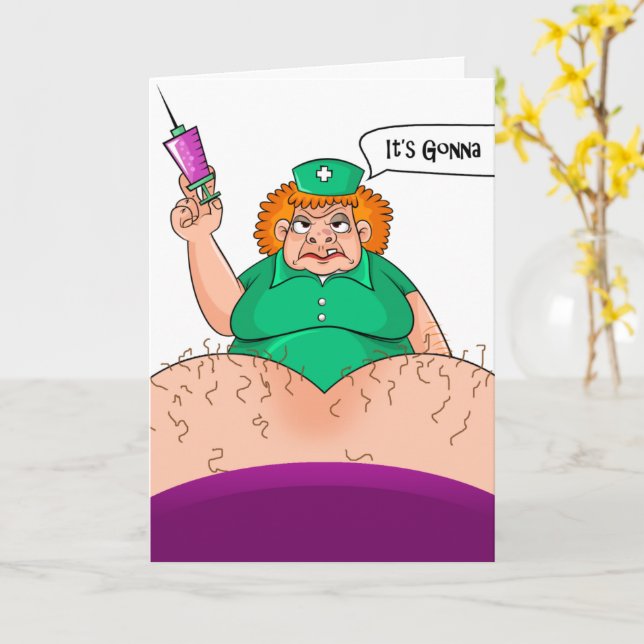A client on warfarin is being discharged. Which food should the nurse teach the client to avoid?
A. Broccoli
B. Apple
C. Rice
D. Banana
Broccoli
A 16-year-old patient with cystic fibrosis is admitted with increased shortness of breath and possible pneumonia. Which nursing activity is most important to include in the patient’s care?
1. Perform postural drainage and chest physiotherapy every 4 hours
2. Allow the patient to decide whether she needs aerosolized medications
3. Place the patient in a private room to decrease the risk of further infection
4. Plan activities to allow at least 8 hours of uninterrupted sleep
What is 1. Perform postural drainage and chest physiotherapy every 4 hours
"We all live in a yellow ______".
"submarine".
-The Beatles
"Billie Jean", "Beat It", and "Thriller"
Michael Jackson
Carlos has been admitted to the hospital with a diagnosis of acute pancreatitis, and Nurse Isabella is assessing his pain. What type of pain is associated with this diagnosis?
A. Burning and aching, located in the left lower quadrant and radiating to the leg
B. Severe and unrelenting, located in the epigastric area and radiating to the back
C. Burning and aching, located in the epigastric area and radiating to the umbilicus
D. Severe and unrelenting, located in the left lower quadrant and radiating to the hip
B. Severe and unrelenting, located in the epigastric area and radiating to the back
The pain associated with acute pancreatitis is often severe and unrelenting, is located in the epigastric region, and radiates to the back. It is also described as having a sudden onset, a deep, piercing, continuous, or steady quality. The other options are incorrect.
Which movie features the songs "Hakuna Matata" and "I Just Can't Wait to be King"
Lion King
 A client prescribed digoxin has an apical heart rate of 52 bpm.
A client prescribed digoxin has an apical heart rate of 52 bpm.
What is the nurse’s best action?
A. Administer as ordered
B. Hold and notify the provider
C. Give with food
D. Increase oral fluids
Hold and notify the provider
Miles Davis and Louis Armstrong played this brass instrument.

Trumpet
"R-E-S-P-E-C-T find out what ___ ______ ___ ___"
"it means to me"
-Aretha Franklin
"Good Vibrations", "Kokomo", and "Wouldn't it be Nice?"

The Beach Boys
The characters in this musical include Dorothy, the Tin Man, the Scarecrow, and the Cowardly Lion. You'll recognize the song "Over the Rainbow".

Wizard of Oz
This movie features the songs "Let it Go" and "Do You Wanna Build a Snowman?"
Frozen
Kurt Cobain was the lead singer of this 90's grunge band. You may know their hit song "Smells Like Teen Spirit".

Nirvana
A patient with a pulmonary embolus is receiving anticoagulation with IV heparin. What instructions would you give the nursing assistant who will help the patient with activities of daily living? Select all that apply.
1. Use a lift sheet when moving and positioning the patient in bed
2. Use a lift sheet when moving and positioning the patient in bed
3.Use a lift sheet when moving and positioning the patient in bed
4. Use a rectal thermometer to obtain a more accurate body temperature
5. Be sure the patient’s footwear has a firm sole when the patient ambulates
What is 1,2,3,5
Client History:
An 84-year-old client diagnosed with stage 4 lung cancer with metastasis to the brain and liver. The client resides with his daughter and her family, who serve as his primary caregivers at home. The client's advance directive states that he does not want CPR, intravenous fluids, antibiotics, a feeding tube, or hospitalization at the end of life. His daughter is his health care power of attorney.
Nurses' Notes:
Client sitting in a recliner. Awake and confused, and insists he needs to go see his wife, who has been deceased for 15 years. Daughter states is very concerned because the client has become more agitated over the past two days and is not sleeping at night. Client's skin is hot and pale, oral mucosa dry. Breath sounds diminished throughout with coarse rhonchi on the right. Productive cough with large amounts of thick, white sputum. Client reports “terrible” pain in his back that is not being relieved by his current pain medication. Taking sips of water, but refuses food and reports having no appetite.
Vital Signs:
BP 108/60
HR 88 irregular
Temp 100.8°F (38.22°C)
RR 18
SpO2 92% on 2L O2/NC
"1 2 3"
-The Jackson 5
"Tiny Dancer", "Rocket Man", and "I'm Still Standing"
Elton John
What is the name of this Scottish wind instrument?

Bag pipes
Which Disney movie features a genie and the songs "A Whole New World", "Prince Ali", and "Arabian Nights"?
Aladdin
Freddie Mercury was the lead singer of this 80's classic rock band. Their hits include "We Will Rock You", "Bohemian Rhapsody", and "We Are the Champions".

Queen
This string instrument looks like a large violin and is played by Yo Yo Ma.

Cello
Client History:
An 84-year-old client diagnosed with stage 4 lung cancer with metastasis to the brain and liver. The client resides with his daughter and her family, who serve as his primary caregivers at home. The client's advance directive states that he does not want CPR, intravenous fluids, antibiotics, a feeding tube, or hospitalization at the end of life. His daughter is his health care power of attorney.
Nurses' Notes:
Client sitting in a recliner. Awake and confused, and insists he needs to go see his wife, who has been deceased for 15 years. Daughter states is very concerned because the client has become more agitated over the past two days and is not sleeping at night. Client's skin is hot and pale, oral mucosa dry. Breath sounds diminished throughout with coarse rhonchi on the right. Productive cough with large amounts of thick, white sputum. Client reports “terrible” pain in his back that is not being relieved by his current pain medication. Taking sips of water, but refuses food and reports having no appetite.
Vital Signs:
BP 108/60
HR 88 irregular
Temp 100.8°F (38.22°C)
RR 18
SpO2 92% on 2L O2/NC
The nurse completes the client assessment and immediately
1. Notifies the HCP of the client's Vital signs
2. Prepares to suction the client
3. Reviews the frequency and amount of pain medicine
4. Encourages the client to increase oral intake
and informs the caregiver that
1. The client will likely expire soon
2. Agitation can be due to unrelieved pain
3. There is little that can be done for the client
4. The client will need to be heavily sedated.
A change in vital signs and decompensation of the hospice client is not a cause to notify the HCP. The goal of care is symptom management and quality of life, as well as understanding that death is imminent. Aggressive treatment aimed at cure or correction is not conducive to managing symptoms at end of life. The client has requested no hospitalization and no antibiotics or IV fluids.
Ensuring the client does not choke on secretions is important, but there is no indication the client is having difficulty with secretions. It is important to maintain the airway and prevent distressing symptoms, and oral suction at the bedside may help the client with expectorating secretions, but pain management is key for this client. Controlling pain and distressing symptoms can alleviate suffering and promote comfort. Encouraging oral intake is not appropriate for the client. Foods and fluids should be offered, but it is a natural progression for the client to refuse to eat and to drastically reduce oral intake at end of life.
The client has adequate blood pressure and is communicating and death is likely not imminent, although it may occur within a short while. Agitation can be due to unrelieved pain, and pain and symptom management are the main goals of care. The nurse should reassure the caregiver that everything that can be done to ensure the client is comfortable will be done. The goal of care is not to heavily sedate the client, but to control symptoms and promote quality of life while ensuring a comfortable death.
"Baby One More Time", "Toxic", and "(You Drive Me) Crazy"

Brittney Spears
The "Star Spangled Banner" is our national what?
Anthem
Which movie, set in China, features the songs "I'll Make a Man Out of You" and "A Girl Worth Fighting For"?
Mulan
The lead singer of this 70's rock band is Stevie Nicks. You may know their song "Dreams".

Fleetwood Mac
This type of percussion instrument starts with a "b".

Bongo Drums
Client History:
An 84-year-old client diagnosed with stage 4 lung cancer with metastasis to the brain and liver. The client resides with his daughter and her family, who serve as his primary caregivers at home. The client's advance directive states that he does not want CPR, intravenous fluids, antibiotics, a feeding tube, or hospitalization at the end of life. Daughter is his health care power of attorney.
Nurses' Notes:
Client sitting in recliner. Awake and confused, and insists he needs to go see his wife, who has been deceased for 15 years. Daughter states is very concerned because the client has become more agitated over the past two days and is not sleeping at night. Client's skin is hot and pale, oral mucosa dry. Breath sounds diminished throughout with coarse rhonchi on the right. Productive cough with large amounts of thick, white sputum. Client reports “terrible” pain in his back that is not being relieved by his current pain medication. Taking sips of water, but refuses food and reports having no appetite.
Vital Signs:
BP 108/60
HR 88 irregular
Temp 100.8°F (38.22°C)
RR 18
SpO2 92% on 2L O2/NC
Indicate the 4 assessment findings that require immediate intervention.
BP 108/60, HR 88 and irregular.
Client is awake and confused.
Caregiver reports increased agitation.
Not sleeping at night
Productive cough.
Pain unrelieved by medication.
Decreased oral intake.
The assessment findings indicate the client is increasingly agitated and restless, has poor pain control, and his respiratory status is decompensating. It is crucial to review the advance directives to ensure the client's preferences for care are honored. Priority for hospice care is pain management, symptom control, quality of life, and ensuring the client's wishes are honored. Reassurance of the family as symptoms escalate is also highly important.
"Somebody That I Used to Know"
Gotye
A group of people who play brass, wind, and percussion instruments are called a band. What is a group of people who play string instruments called?

Orchestra
This aquatic Disney movie features the songs "Under the Sea" and "Kiss the Girl".
The Little Mermaid
 A client on lithium reports excessive thirst and urination. Lab results: Lithium 2.1 mEq/L, Sodium 140 mEq/L. What should the nurse do?
A client on lithium reports excessive thirst and urination. Lab results: Lithium 2.1 mEq/L, Sodium 140 mEq/L. What should the nurse do?
A. Continue as ordered
B. Hold medication and notify the provider
C. Restrict salt intake
D. Give with food
B. Hold medication and notify the provider
You might also hear this European keyboard instrument called a "squeezebox".

Accordion
Client History:
An 84-year-old client diagnosed with stage 4 lung cancer with metastasis to the brain and liver. The client resides with his daughter and her family, who serve as his primary caregivers at home. The client's advance directive states that he does not want CPR, intravenous fluids, antibiotics, a feeding tube, or hospitalization at the end of life. Daughter is his health care power of attorney.
Nurses' Notes:
Client sitting in recliner. Awake and confused, and insists he needs to go see his wife, who has been deceased for 15 years. Daughter states is very concerned because the client has become more agitated over the past two days and is not sleeping at night. Client's skin is hot and pale, oral mucosa dry. Breath sounds diminished throughout with coarse rhonchi on the right. Productive cough with large amounts of thick, white sputum. Client reports “terrible” pain in his back that is not being relieved by his current pain medication. Taking sips of water, but refuses food and reports having no appetite.
Vital Signs:
BP 108/60
HR 88 irregular
Temp 100.8°F (38.22°C)
RR 18
SpO2 92% on 2L O2/NC
Which is most important for the nurse to consider when providing care for this client?
- advance directive information
- confused
- more agitated
- not sleeping
- BP 108/60
- SpO2 92% ON 2L O2/NC
- temperature 100.8
- breath sounds
- productive cough
- pain not relieved
- sips of water
- refusing food
In end of life care, the hospice nurse must first consider the client's preferences for care, as communicated by the client. An advance directive details the client's preferences for end of life care as well as the identification of a health care proxy. Change in mental status, confusion, and agitation are symptoms of deterioration, and assessment findings indicate the client is having increased respiratory difficulty and pain. Refusing food and taking only sips of water, although not unexpected at the end of life, are highly significant for end-of-life prognosis and care.
"Paparazzi", "Poker Face", and "Born this Way"

Lady Gaga
What do we call the genre of music that composers like Beethoven, Mozart, and Bach are known for?
Classical Music
This recent Disney film features the songs "You're Welcome", "How Far I'll Go", and "We Know the Way".
Moana
